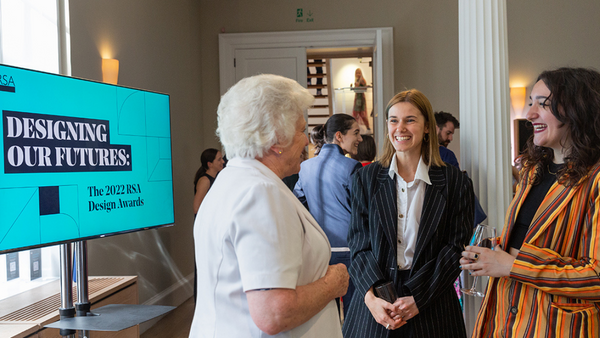I have to admit to feeling ambivalent about the Government’s free schools policy. I am all for fresh thinking about schools but think it is the content of teaching and learning, and the relationship between schools and communities which are most important, not who owns and governs.
But, giving a talk a few days ago about the need for greater innovation in schools I stumbled on a new argument for Michael Gove’s policy. Arguably there is still remarkably little innovation in state funded schools. Secondary schools are, after all, multi million pound knowledge businesses. Yet ask most head teachers to point you in the direction of research and development in their institution and you will get a blank look. There are many reasons for this but one less often cited than the constraints of the national curriculum, OFSTED inspection and declining budgets concerns risks and ethics. Children only get one chance at schooling. But a cliché of innovation is the need to be willing to get things wrong and learn from failure.
The ethical dilemma is whether it is reasonable for a set of pupils to be the guinea pigs for risky innovation. It may just be that health care is seen as more scientific than learning, but while the idea of clinical trials (which involve a control group being given a useless placebo while the experimental group is subject to a unproven treatment) is accepted in medicine, I can’t see it going down very well if a head teacher were to describe such an experimental frame to their parents. Guy Claxton can point to hundreds of action research projects based on the use of his Building Learning Power techniques but, whatever their insight, I don’t think he would claim they have the rigour of a clinical trial.
The point about free schools is that many of them are created on an explicitly innovative basis. Therefore parents who sign up are agreeing at the outset to their children being part of an experiment. This greater level of sign-up might enable free schools to be more risk taking, with successes and failures from which we can all learn.
The other argument for free schools is more conventional but I found the context in which it was expressed to me rather poignant. It was in a meeting with senior officers of a local authority. The discussion focused on the consistent under-performance of schools and pupils in their area. Unlike some head teachers and some ministers, I found the group open, self-critical and driven utterly by achieving change rather than individual or organisational self-aggrandisement. On free schools one of the officers said: ‘the theory is that the threat or reality of free schools will shock coasting schools out of their complacency and force them to try seriously to improve. We could do wiith some of that’.
The poignancy lay not only in a local authority – so often the target of thinly veiled contempt from education ministers – speaking with a grit and determination that even Sir Michael Wilshire would find hard to match but in something else they shared with me. This was their consternation that a free school had been approved in a village which currently houses a good school providing places for all local children. ‘Why’ one of the officers plaintively asked ‘would they want to set up a free school within 100 metres knowing that this must mean we go from one thriving school to two struggling for survival? The benefits of competition can’t possibly outweigh the problems created’.
Moving to teaching and learning, this story in the Guardian also suggests potential loopholes through which creationism and other strange ideas could be given a free school foothold.
Although most free school applications are turned down, rumours continue to swirl around that senior Department for Education civil servants are deeply concerned at the regularity with which ministers over-rule official advice and approve bids which don’t fully meet published criteria. Add to this the less than satisfactory process by which a departmental contract was awarded to the New Schools Network and the strong impression is created that proper process, due diligence and the public interest is being sacrificed in the pell-mell pursuit of free school numbers.
Sooner or later these problems will gain news traction either through the exposure of embarrassing information, public outcry or the failure of free school projects. At that point a policy with real potential could be caricatured as a reckless ideological gamble. And this explains the question in my headline…
Related articles
-
What are educators’ experiences supporting youth social action?
Hannah Breeze
We asked 2,000 primary educators to share their attitudes, motivations and the potential benefits of delivering youth social action in the classroom.
-
RSA Design Awards: A celebration of design
Aoife O'Doherty
We recently Celebrated the winners of the Student Design Awards and the Pupil Design Awards 2022, at our ‘Designing our futures’ event. Learn about our awardees and their innovative designs.
-
Youth social action and the experience of primary educators
Hannah Breeze
Contribute to our Third Benefit research to understand how involving primary school teachers in high-quality youth social action can inform benefits for them as well as pupils and communities.




Be the first to write a comment
Comments
Please login to post a comment or reply
Don't have an account? Click here to register.